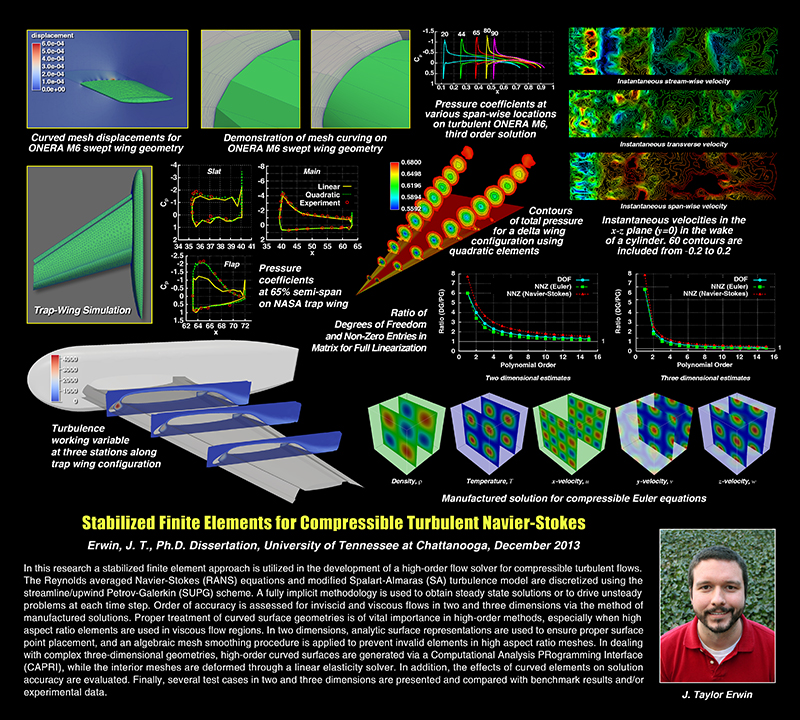Taylor Erwin
Stabilized Finite Elements for Compressible Turbulent Navier-Stokes
A Dissertation Presented for the Doctor of Philosophy in Computational Engineering, The University of Tennessee at Chattanooga
J. Taylor Erwin, December 2013
Abstract:
In this research a stabilized finite element approach is utilized in the development of a high-order flow solver for compressible turbulent flows. The Reynolds averaged Navier-Stokes (RANS) equations and modified Spalart-Almaras (SA) turbulence model are discretized using the streamline/upwind Petrov-Galerkin (SUPG) scheme. A fully implicit methodology is used to obtain steady state solutions or to drive unsteady problems at each time step. Order of accuracy is assessed for inviscid and viscous flows in two and three dimensions via the method of manufactured solutions. Proper treatment of curved surface geometries is of vital importance in high-order methods, especially when high aspect ratio elements are used in viscous flow regions. In two dimensions, analytic surface representations are used to ensure proper surface point placement, and an algebraic mesh smoothing procedure is applied to prevent invalid elements in high aspect ratio meshes. In dealing with complex three-dimensional geometries, high-order curved surfaces are generated via a Computational Analysis PRogramming Interface (CAPRI), while the interior meshes are deformed through a linear elasticity solver. In addition, the effects of curved elements on solution accuracy are evaluated. Finally, several test cases in two and three dimensions are presented and compared with benchmark results and/or experimental data.
Click here to access a copy of Taylor's dissertation.
